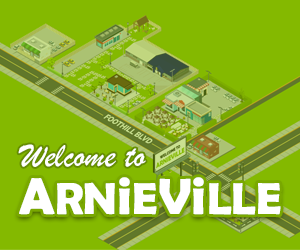The following is a transcript excerpt from one of Dr. Jordan Peterson’s lectures during the 12 Rules for Life Tour.
There are only a couple of ways you can be a Christian and a Marxist. One is that you just want to be all things that are good at once regardless of their internal contradictions. So, that would be one reason. Another reason would be that you do not know anything about Christianity or Marxism. The next would be that you are just compartmentalized.
There is this idea that people cannot hold two contradictory thoughts in their mind at the same time. That idea was formulated by someone who has never met a human being because you can hold about 50 contradictory thoughts in your head at the same time, as you know whenever you argue with someone that you love. You love them, and maybe you even like them, but you also hate them and you wish that you could just crush them right then and there. That is a lot of contradictory ideas, and that is probably only half the contradictory ideas that are running through your mind at the moment. You are so full of contradictions that it is just beyond belief.
I know this because I read undergraduate essays. The undergraduate will make a claim in paragraph one and then in paragraph seven will make the opposite claim. And they will not notice that they are intellectually incommensurate. That might happen 30 times in the essay. The reason that works is because they have not been called on the paradoxes, but also because they have not had to live the paradoxes through. Because you really only straighten out your thoughts when you have Impulse A and Impulse B, and they conflict at the same time, and you can either do one or the other but not both. If it is A today and B tomorrow, then you can hold those ideas simultaneously. But if it is A or B right now, then you have to decide: Is A more important or is B more important? You have to put them in a hierarchy. Then you have to act them out, and you have to see what happens. Then you find out if you are full of contradictions.
Part of the way that you iron out your contradictions, which is very hard to do, is that you go out and you do a whole bunch of things in the world, like Socrates did. You have your adventure in the world, and you put your ideas to the test. Those that work out in a paradoxical or counterproductive manner you dispense with, or put lower on the priority list, or something like that. That is how you discover that you cannot hold incommensurate views simultaneously. Carl Jung said that paradoxical views that are not made conscious will be played out in the world as fate. That is really worth thinking about too. So, if you have your typical negative experience — this thing that seems to just keep happening to you, bad luck, let’s call it — it is highly probable that there is a set of ideas that is occupying you, preoccupying you, possessing you, that is driving you in this direction continually. And you cannot or will not work out the contradiction. Maybe you think every woman is your mother, and you have not noticed that you think that. It is something that people think because mothers are women, and it is not a bad initial template, but you have to modify it to some degree. If that is an unconscious idea that you have, and you continue to play it out, you may run into your continual, habitual, negative experience with women, and you will wonder what the hell is wrong with women. But it is not the women who have the problem; it is you. If you run into problems with women all the time, then it is highly probable that the problem is you — not always, but generally.
To discuss this Marxist and Christian idea, we will start with some of the ideas of Marx. Marx believed that people were basically socially constructed, so that we were blank slates and our nature was given to us, essentially, by our surroundings, but even more importantly by our social class. Marx was a theorist of social class and believed that the primary motivator of human history — the primary driver of human history — was the rich versus the poor or the bourgeoisie versus the proletariat. That was a consequence of your social upbringing and your group identity was paramount. There is nothing about that that is vaguely Christian. That is not how the Christian worldview works. That is not how the Judeo-Christian worldview works because in that worldview, you are fundamentally an individual. Your nature is fundamentally attributable to you by God. You are fundamentally responsible to God. And history itself is something like the playing out of your relationship to the transcendent. So those are not the same. They are not commensurate. You cannot believe both of them at the same time.
Marxism is a materialistic philosophy. It is predicated on an idea that [Fyodor] Dostoevsky criticized in great depth — that if you just made people rich enough, if you deprive them of their privation, if you equalize their economic status, then the utopia would come to light upon earth. I have a certain amount of sympathy for a viewpoint like that because who likes starvation and misery? There is nothing positive to be said about that. But I think Dostoevsky was right too in his criticism of Marxism. He was not directly aiming this at Marx in “Notes from Underground,” but he noted that if you gave people what they wanted in terms of bread and circuses, and they had nothing to do but eat cakes and busy themselves with a continuation of the species, which is kind of a nice phrase, the first thing they would do is take a hammer and smash things just so that something improbable and strange would happen, just so that we could have our way.
It is kind of a recapitulation of the idea of original sin in Dostoevsky’s subtle manner. He said we are the sorts of creatures that are ungrateful. That is the thing that primarily distinguishes us from animals is that we are ungrateful and we can curse. That was what he thought made us different than animals. And that even if we got what we wanted materially, that would not satisfy us because we are not the sorts of creatures that can be satisfied with material possessions or material comfort because it is not even obvious that we are after comfort. What do you want? Do you want to just lay in a feather bed and eat peeled grapes all day? Maybe for an hour or so that might not be a bad idea, but it is going to get dull pretty quick. You are going to go out looking for trouble. It is certainly possible that the more material resources — and the easier they are to get — that you have at your disposal, the more creative ways you are going to find to cause yourself trouble when you go out and look for trouble. That is a testament to the human spirit, and Dostoevsky knew this. Whatever we are here for, it is not the utopia of equal material distribution. We are not looking to be fed and asleep. I do not know what it is that we are looking for. God only knows. Maybe what we are looking for is to continually keep looking. That is the sort of creatures we are. But the materialist philosophy is, if you just provided for people economically the problem is over. No. Wrong.
Given that you are going to be ill in one way or another and that you are still subject to mortality and all of the terrible natural limitations that human beings are characterized by, you are about as well off as you are going to get. The economic data already showed that once you have enough money so that bill collectors are not chasing you (which basically puts you in the upper reaches of the working class or maybe the lower end of the middle class) additional money has absolutely no effect whatsoever on your self-reported well-being, which is something like a combination of positive emotion and absence of negative emotion. You might like to think that if you were rich, your life would be better. And maybe it would be somewhat better, but it would not be as much better as you might hope. That is because you would still have most of the problems that people have. You would still not get along with your sister, and you would still get divorced. Maybe you would even be more likely to. There would still be illnesses that would beset you. You would be able to deal with them perhaps with some degree of more urgency. But you still have the problem with what the hell your life is for and what you are doing on the planet and how to conduct yourself in the proper way. So we do not want to be too naive about materialism, even though we do not want to be ungrateful for its advantages.
Marx also believed that history was basically characterized by the war of socioeconomic groups. That has been transformed more recently into the war of identity groups, which is the same damn thing. It is the same old wolf in new sheep’s clothing: The best way to conceptualize human beings is whatever your damn identity is. Maybe it is sex for you, and it is ethnicity for you, and it is gender for you, and God only knows what it is for you. And that is who you identify with and all there is in the world. And this is the postmodernist view: Hierarchies of people in these identity groups struggling for dominion. That is a quasi-Marxist viewpoint. It is just a variant of the bourgeoisie versus proletariat theory of history, which is a foolish theory as far as I am concerned and certainly not one that we need to take forward into the 21st century, although we seem destined to insist that we do so. He believed that the revolutionary overthrow of the oppressor class was necessary and morally demanded. That turns out to be a little bloodier than I would say the typical Judeo-Christian ethic might require because it does not require you to take up arms against your evil overlords and put them in gulags and kill them by the millions, for example. That, to me, seems to be an important difference.
In the Judeo-Christian tradition, there is no group guilt. You are guilty and you are guilty of different things. And that is your problem. But maybe you are also innocent. Who knows? But, it is on you. It is not a consequence of your racial heritage or your ethnicity or your gender or any of those things. It is between you and God, or it is between you and the state even. But at least it is between you and the state or God. It is not as though your father or grandfather was a factory owner. It was perfectly reasonable during the Russian Revolution and the Red Terror to vacuum you up along with your whole family and do away with you because you would had been irredeemably tainted by your bourgeoisie past. That is another place where Marxism and Judeo Christianity are not just different; they are opposite. It is not just Variant One and Variant Two. These are seriously different ideas. So there is another reason you cannot be a Marxist and a Christian.




